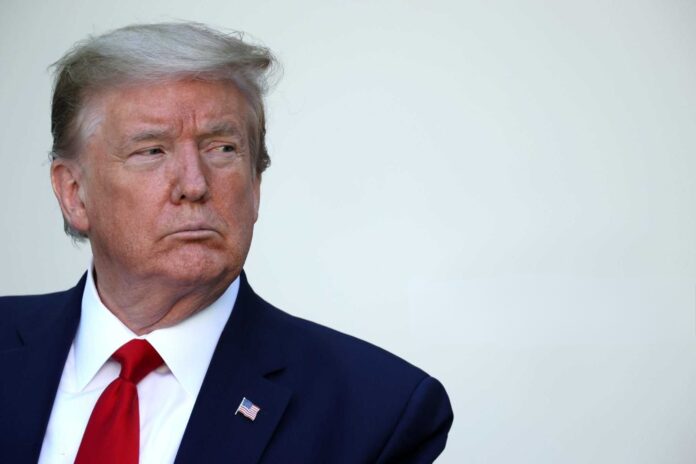In President Trump’s 2025 inauguration, he applauded US pioneers of the past and stated that “the spirit of the frontier is written into our hearts”.
Weeks after Trump’s landslide, digital-asset stakeholders remain optimistic that the 47th president will fulfil his promise to make the US the “crypto capital of the planet”. Having breached the $100,000 and stayed there, crypto leader Bitcoin surged to a new high of over $106,000 after Trump in mid-December confirmed the scale of his ambition, including plans for a Bitcoin Strategic Reserve.
Crypto was not a focus of Trump 1.0. Indeed, in July 2019 he took to Twitter to decry the asset class. However, Bitcoin rose sharply in an environment of deregulation and tax cuts, which included the repeal for smaller banks of Dodd-Frank rules, and a relaxation of bank investment restrictions. At the same time, at the Treasury Department and the Securities and Exchange Commission (SEC) Trump appointees advanced the administration’s pro-growth agenda.
Digital assets, and particularly Bitcoin, became a major election focal point only from July, when during a speech at the Bitcoin 2024 conference in Nashville, Trump promised to end enforcement actions, sack crypto-sceptic SEC Chair Gary Gensler, establish a Bitcoin and Crypto Advisory Council, and build the strategic Bitcoin reserve fund.
He also pledged to make the US a “Bitcoin mining powerhouse” by doubling electricity capacity, and to establish a framework for the “safe and responsible expansion of stablecoins”.
Trump had been in close contact with top crypto executives and has since earmarked top jobs for crypto-friendly allies. These include former PayPal COO David Sacks, who becomes White House AI and Crypto Czar, and Paul Atkins, a pro-crypto former SEC commissioner who replaces Gensler as SEC head.
On announcing Sacks’ appointment, Trump said the new Crypto Czar will work on a legal framework for digital currencies, an area where the President-elect had previously said little.
Compare and contrast
Trump’s plethora of pledges contrast with a Biden administration that many digital-assets enthusiasts say featured a concerted attempt to deny the crypto sector access to banking services, with other hostile moves including Biden’s veto of Congress’ resolution to overturn SEC restrictions on crypto custody by banks.
“It’s a positive direction juxtaposed with the Biden administration,” says Rob Hamilton, CEO and co-founder of Bitcoin custody and insurance provider AnchorWatch. “Immediately being able to have easier access to banking services is a huge win, as is the fact that people that wanted to regulate by lawsuit or the threat of legal action are being replaced by people looking at crypto with a more open mind.”
Crypto stakeholders foresee less friction around the development of investment products than before SEC’s reluctant approval, after a lawsuit, in January 2024, of the first 11 Bitcoin spot exchange-traded funds, including funds from crypto convert BlackRock, Fidelity and Invesco.
In December, the SEC approved the first dual Bitcoin and Ethereum ETFs, from Hashdex and Franklin Templeton. Other ETFs featuring some of the 40-plus major crypto currencies sitting among the 20,000 or so in existence are seen likely to follow.
Law firm Wilmer Hale suggests possible crypto-friendly action at the SEC could include halting registration-only enforcement actions against crypto companies, updating more-than-five-year-old guidance on the sale of crypto assets as securities, and proposing tailored crypto-asset-specific rules. It could also facilitate the work of special purpose broker-dealers to trade digital assets and execute custody functions before temporary rules expire.
Rule of law
In Congress, the growing numbers of crypto-friendly lawmakers headed to Washington, both Republican and Democrat, bode well for helpful legislation.
Newcomers include Republican Ohio Senator Bernie Moreno, who defeated crypto critic Sherrod Brown, Senate Banking Committee chair. Crypto-friendly appointments to four key Congressional committees, also include Tim Scott to chair the Senate Banking Committee; and John Boozman as chair of the Senate Agriculture Committee.
Existing legislation including FIT21, governing crypto regulation, could be reintroduced under the new administration. The landmark bill, the first of its kind to gain both bipartisan and industry support, would largely resolve a dispute about digital assets oversight by handing an expanded role to the CFTC.
Other previously introduced legislation includes the Bitcoin Act of 2024 to establish a programme for Treasury Bitcoin purchases, which very loosely chimes with Trump’s plan for the strategic Bitcoin stockpile, and three major pieces of stablecoin legislation. Coinbase chief policy officer Faryar Shirzad in December predicted a regulatory framework for stablecoins would be place by the end of 2025.
In short, expectations are running high, even before lawmakers have confirmed Trump’s picks as regulatory chiefs.
Appraising the situation from the UK, Ian Taylor, KPMG’s UK head of digital assets, warns of a potential gap between rhetoric and reality.
However, he noted, “In 2024 we saw very large demand for asset allocators to hold a small amount of blue chip (BTC, ETH etc) in their portfolios”, pointing to total exchange-traded fund (ETF) spot flows into Bitcoin of roughly $160bn.
Similarly, PwC’s 2024 Global Asset and Wealth Management survey – conducted before Trump’s victory – found that 80% of the asset and wealth managers which offered digital assets reported a rise in in flows. However, these firms accounted for only 18% of the asset and wealth managers surveyed.
A separate PwC hedge fund survey found a continued hesitancy among traditional hedge fund managers too, with 76% of those not already invested in digital assets saying they were unlikely to do so in the next three years, up from 54% a year earlier. This was often because these were excluded from investment mandates.
In the frame
The lack of a regulatory framework for digital assets in many jurisdictions remains a problem, even assuming change will come fast in the US.
In the UK, the Financial Conduct Authority has only just signalled a roadmap for crypto assets and the adoption of distributed ledger technology, and crypto ETFs remain closed to retail investors. The regulator recently put crypto ownership at 12% of adults.
Aside from the regulatory environment, other challenges to wider digital assets expansion have included a lack of reliable infrastructure including custody solutions. However, AnchorWatch’s Hamilton argues that infrastructure is now in place for wider adoption and that digital-asset service providers are positioned to scale up quickly to meet rising demand. He believes his company to be the first entity offering secure Bitcoin custody combined with an insurance policy directly for the owner.
The inherent volatility of crypto, whether “digital gold” Bitcoin or one of its exotic siblings, is harder to overcome, with memories of the 2022 rout lingering.
Though the dedicated crypto businesses of hedge fund managers such as Brevan Howard made stellar post-election gains, some traditional asset and wealth managers remain cautious.
Wealth manager Evelyn Partners is typical in not allocating directly into crypto.
Managing director Jason Hollands said, “That’s partly due to the regulatory environment, lack of vehicles such as ETFs, but also because of the highly speculative and volatile nature of these assets.
“A challenge with these nascent asset classes is arriving at an assessment of what is fair value, given prices are ultimately driven by buying momentum.”
That sentiment is echoed by many large asset managers. However, tokenisation is something they are much more willing to consider to gain operational efficiencies and as an investment strategy in its own right.
The £1.2trn ($1.5trn)-assets-under-management Legal & General is one of several large players exploring or already engaged in fund tokenisation.
Some fund managers are already developing dedicated digital assets investment products, including Abrdn, which has positioned itself as a digital assets leader. Partnerships or investments in digital assets fund managers are also gaining pace. Jupiter, for example, took a 9% stake in London-listed Phoenix Digital Assets.
Defined benefit pensions specialist Cartwright recently took a major leap by advising an unnamed UK pension fund to make a 3% Bitcoin allocation.
Cartwright director of investment consulting Sam Roberts said at the time the move offered diversification and exposure to an asset class with a ”unique asymmetric risk-return profile.”



